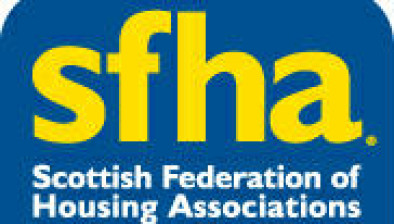Scottish charities call for ‘dramatic action’ to protect most vulnerable from cost-of-living emergency

The SFHA is among the letter's signatories
Charities in Scotland are urging the First Minister to treat the cost-of-living crisis as a top priority and take all actions necessary to help people on the lowest incomes through this national emergency.
In a letter to the First Minister, organisations including Trussell Trust Scotland, Save the Children Scotland, the Poverty Alliance, CPAG in Scotland, IPPR Scotland, the Robertson Trust, One Parent Families Scotland, Energy Action Scotland and the Scottish Federation of Housing Associations have called for immediate cash support for families on the lowest incomes. There is no greater priority that any government could have than preventing families from going cold and hungry this winter, they write.
According to the signatories, the UK Government’s pledge of £1,200 to each of the most vulnerable households is now “hopelessly insufficient” in the face of the increasing cost of food and runaway energy bills. Today it costs households £5.40 a day to achieve the same level of comfort they could achieve for £2.80 in October 2020. According to the latest energy price cap projections, from October this will rise to £9.60 per day.
The letter states that it is unthinkable that households on low incomes should be expected to meet these shortfalls in essential costs alone. The problem is particularly acute for rural communities across Scotland, who face colder temperatures and generally higher living costs as well as limited access to the gas network.
Along with doubling the planned “bridging payments” for families with children in receipt of free school meals, the letter’s signatories are also calling for the Scottish Government to introduce further one-off payments to families in receipt of the Scottish Child Payment and Council Tax Reduction as well as a doubling of the Child Winter Heating Assistance.
The Scottish Government can prevent the short and long-term impacts on the health and wellbeing of families who would otherwise be unable to make ends meet. But action is urgently needed from all tiers of Government to protect people on the lowest incomes who are already at breaking point. The calls follow charities’ demands on UK political leaders to use Westminster powers to step up support for lower income households.
Chris Birt, associate director for Scotland at the Joseph Rowntree Foundation, said: “Families in Scotland are facing a crisis in being able to keep food on the table and keep their houses warm this coming winter. Even with the significant support announced by the UK Government, families are still facing a shortfall which they won’t be able to meet from their already overstretched budgets.
“Acting now and providing immediate cash support would significantly ease the pressures which households face over the winter. The costs to the Scottish Government are not insignificant, but the immense pressures facing families in Scotland are such that dramatic action is needed.”
The full text of the letter is below.
Dear First Minister,
As you know, the cost-of-living crisis continues to stretch the budgets of households all over Scotland to breaking point and we are deeply concerned about the short and long term impact on the health and wellbeing of individuals and families who are unable to make ends meet. It was welcome to see you chair the Scottish Government Resilience Room last week, highlight the Scottish Government’s, and your own, commitment to helping Scottish households including a commitment to cash first support.
While we understand, and in many respects share, your view that the UK Government must play the lead role in responding to this crisis, it is still incumbent on your government to continue to do the right thing and take all actions necessary to help people in Scotland be able to keep food on the table and their houses warm this coming winter.
The significant support that the UK Government announced in May will not even match the rise in the energy cap due in October. The latest estimates for the price cap put it will over £4,000 by early 2023. A £1000 increase on the £2800 value that was used as the benchmark for the cost of living payments announced by UK Government.
For households this means that today it would cost them £5.40 a day to achieve the same level of comfort they could achieve, for £2.80 in October 2020. From this October that will be £9.60 per day. The only way for households to break even is to reduce consumption, i.e. go cold.
Those who rely on electricity as a primary heating fuel are also facing higher costs with even the April 2022 cap resulting in average annual bills which are around £1,000 more than the average dual fuel customer. Rural communities are therefore particularly disadvantaged due to the limited access to the gas network in combination with colder temperatures, a high proportion of hard-to-treat housing stock and generally higher living costs when compared to the rest of Scotland.
For these obvious reasons, much of the focus has been on the sharp rise in energy bills but the latest inflation figures also showed that food prices had grown by almost 10% in the year to June 2022.
It is in that context that we are asking you to consider further action to support Scottish households surviving on low incomes over the coming months. We understand that for the Scottish Government this will mean reopening an already stretched budget for 2022-23. We cannot, however, see what greater priority any government could have at the moment than preventing families across Scotland from going cold and hungry this winter.
This is not a storm, unlike the weather we can control the impacts that this crisis will have. With the Bank of England warning that we face a long recession and inflation peaking at 13% it has to be the top priority of all tiers of government in Scotland to protect those currently on the lowest incomes from this crisis.
Cash-first emergency support
All of the signatories to this letter of course want to see longer-term solutions to reducing poverty in Scotland but the current crisis demands immediate cash support to families. As a result we think the Scottish Government should:
- Double the planned “bridging payments” for families with children in receipt of free school meals from £130 to £260 – this would benefit around 150,000 families at a cost of around £39m.
- On full roll out of the Scottish Child Payment make a further one-off payment to all recipients of £260 in early 2023 [1] – this would benefit around 300,000 children and cost £79m. We appreciate this will require subordinate legislation to make it happen and will put an administrative burden on Social Security Scotland but given the emergency those concerns must be overcome.
- A further £260 payment to all of those in receipt of Council Tax Reduction. The previous Low Income Pandemic Payment provides a model for such payments and would benefit around 500,000 low income households and cost £130m. Importantly this will support families who do not have children, as well as many who do.
- Double Child Winter Heating Assistance to £428.20 supporting 20,000 disabled children and young people at a cost of £4.3m.
- A boost of 50% or £17.75m to the Scottish Welfare Fund, along with additional funding to enhance administrative capacity and improved promotion of the Fund, to provide local authorities with greater discretion to support households facing extreme financial duress and who have not been able to get support from elsewhere.
We believe if the Scottish Government were to take this action, hopefully complemented by further support which we in concert with our colleagues across the UK will continue to lobby for from the UK Government, this would help significantly ease the pressures which households face over the winter. It would be targeted at those who needed it the most and while the cost is not insignificant to the Scottish Government, it pales when compared to the potential impacts on individuals, and the knock on impacts on public services, of no further support being available.
In this context, you may also have seen the letter signed by a variety of bodies at a UK level calling for the candidates for Prime Minister to commit to the doubling of the UK Government’s support to households as well as limiting the debt deductions from Universal Credit. A call you would hopefully support. You will also have seen that the End Child Poverty Coalition have called for the doubling of the bridging payments for the child payment, a call that we echo here.
Difficult trade-offs in 2022-23
It was welcome to see you order a budget review as part of the Resilience process. While we appreciate that options to free up funds and/or raise additional funds during the financial year are limited we would urge you to turn over every stone to do so.
We have done some initial analysis of ways of funding additional cost of living support doing so and would be happy to engage with you, and/or your officials, to explore options.
We would also ask you to commit to any additional consequentials coming from the UK Government to be committed to tackling the spiralling cost of living.
Public and private sector debts
As well as these direct spending asks, we think it is crucial that the entire public sector in Scotland, take an extremely proactive, and forbearing, approach in managing debts and arrears. Aggressive collection of public sector debts and arrears is a counterproductive and anxiety-inducing mistake. For often modest amounts it will only serve to worsen families’ struggles and ultimately increase the cost to the public purse of supporting those families to pick up the pieces.
We would also encourage the Scottish Government to work closely with energy providers in Scotland to target debt write-offs or bill support at those who need it most. Not least pre-payment meter users who may have a debt on their meter before they can even restart their heating in the winter.
Many of the signatories to this letter also wrote to the Cabinet Secretary for Finance and the Economy and the Cabinet Secretary for Social Justice, Housing and Local Government in the context of the earlier cost of living help via the council tax system. Ms Forbes acknowledged that there was no perfect mechanism but this is part of the problem and, as we raised in that letter, needs rectified. We still think it is vital that the Scottish Government should have the ability to provide emergency cash support in a more effective manner. Particularly for people in the priority groups for tackling child poverty or for households where someone is disabled who often face significant barriers to work and/or reduced social security support.
While we appreciate there is nothing in these proposals that can be done without cost or significant effort we believe the challenges facing families in Scotland are such that dramatic action is needed.
Yours sincerely,
Chris Birt, Joseph Rowntree Foundation
Claire Telfer, Save the Children Scotland
Frazer Scott, Energy Action Scotland
Polly Jones, Trussell Trust Scotland
Russell Gunson, the Robertson Trust
John Dickie, CPAG Scotland
Peter Kelly, Poverty Alliance
Sally Thomas, SFHA
Satwat Rehman, One Parent Families Scotland
Philip Whyte, IPPR Scotland









